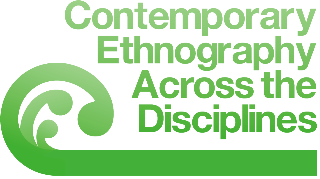A workshop at the University of
Stirling, 16 May 2014
The
issue of how we represent global cultures and associated material collections
has been at the core of museological and postcolonial theory in recent years,
with different formulations wrestling with the questions of how museums can
address their histories and ensure the relevance of their collections. Key to
this debate, are the terms employed for the objects themselves and the
categories that museums deploy for the conventional purposes of interpretation
and display. For example, the uncritical use of terms such as ‘religion,’ ‘art’
or ‘ethnography’ have a profound effect on how material culture is presented in
museums and studied in universities.
There
are a number of key factors in this debate. One is the provenance of the
objects. Another is the ideological and – often – colonial context within which
the objects were acquired. A third is the stated and inferred purposes of
museums, which have their own ideological history. A fourth is the biographical
positionality and status of the collector. There would also be the methods at
different stages of acquisition for providing a description and valuation of
the objects. And finally, there are the terms employed for the objects
themselves and the categories that museums deploy for the conventional purposes
of interpretation and display. For example, the uncritical use of terms such as
‘religion,’ ‘art’ or ‘ethnography’ have a profound effect on how material
culture is presented in museums and studied in universities.
The
University of Stirling, through the pioneering approaches to the study of
categories under the descriptor Critical Religion,
has been instrumental in deconstructing the term ‘religion,’ with a significant
impact on the study of global cultures. Through a collaborative project between
the University of Stirling and National Museums Scotland, this work has been
applied to the context of Tibetan material culture and the western construction
of Tibetan Buddhism in the late nineteenth and early twentieth century, in
particular by missionary and military collectors. This has resulted in the
completion of a PhD by Inbal Livne with the title Tibetan Collections in Scottish Museums 1890-1930: A Critical
Historiography of Missionary and Military Intent.
Following
on from this project, this workshop will explore the way in which academics
within museums and universities are challenging historically assumptive terms
in the identification, interpretation and use of material culture evidence. We
will also examine how collaborations between museums and universities can
encourage and develop new ways of examining museum collections.
The
workshop will include a brief description of the collaborative Tibet project,
and papers from museum professionals working directly on the practical
application of these theoretical issues in relation to the display of Tibetan
material culture.
We
invite other scholars working on Tibet – or comparable contexts with history
and identity represented in museum collections – to present papers that address
one or more of the following, particularly as these different aspects relate to
one another:
- Missionary involvement in collecting for museums in the UK, and issues that arise in that context.
- The construction of problematised terms such as ‘religion,’ ‘art,’ ‘ethnography,’ etc. in the context of the study of global material culture.
- The examination of new and creative collaborations between museums and universities in developing the deconstruction of historically specific classifications of global cultural practices.
- Historical processes of engagement and revision with regard to museum and archival collections.
- The impact of postcolonial and postmodern thinking on museological and archival practice.
Please
note that we are looking to publish a selection of papers from the workshop in
an edited volume; acceptance of an abstract does not, at this stage, imply
acceptance for publication, but all papers will be considered. Further
information on this will be forthcoming at the workshop.
Deadline
for Call for Papers:
Please
email abstracts of approximately 300 words to Rajalakshmi Nadadur Kannan at rajalakshmi.nadadurkannan@stir.ac.uk by 7 February 2014, to whom all queries should be addressed in the first
instance.




